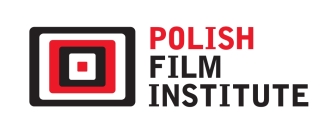Fractal Time: On Evolution of the Notions of Time in Contemporary Cinema
Abstract
The author deals with the important, from the point of view of poetics of contemporary artistic film, problem of various notions of time. Fractal time is the key theoretical category introduced into the analysis by the author. Hendrykowski tests its usefulness in analysing and interpreting film on the construction of time in Nashville (1975), but he also refers to other films by Robert Altman. In contrast to the classical model of film narrative, modern forms of constructing time in film develop alternative versions of showing reality, other than linear order of cause and effect. By way of a panorama or a fresco they combine into one the details of audiovisual show, with an optimally extensive overview. Such an attitude, visionary in the world cinema of the 1970s, makes Altman’s work thoroughly modern form of social cinema on the world scale.
Keywords:
fractal time, Robert Altman, contemporary cinemaReferences
Altman, Rick. 2000. 24-Track Narrative? Robert Altman's "Nashville". "Cinemas: Journal of Film Studies" 3.
Google Scholar
Bazin Andre, 1963. Film i rzeczywistość. Tłum. B. Michałek. Warszawa: WAiF.
Google Scholar
Hendrykowska, Małgorzata. 1996. Chronozofia Kondratiuka. W: Marek Hendrykowski (red.) Kondratiuk. Konin: Apeks.
Google Scholar
Irzykowski, Karol. 1924. Dziesiąta Muza. Zagadnienia estetyczne kina. Kraków: Krakowska Spółka Wydawnicza.
Google Scholar
Syska, Rafał. 2008. Zachować dystans. Filmowy świat Roberta Altmana. Kraków: Universitas.
Google Scholar
Authors
Marek Hendrykowskikwartalnik.filmowy@ispan.pl
Adam Mickiewicz University, Poznań Poland
Historyk i teoretyk filmu, medioznawca, badacz kultury audiowizualnej, profesor zwyczajny w Katedrze Filmu, Telewizji i Nowych Mediów Uniwersytetu im. Adama Mickiewicza w Poznaniu, redaktor senior czasopisma naukowego „IMAGES”, autor monografii książkowych: Film jako źródło historyczne (2000), Kanał (wspólnie z Donem Fredericksenem, 2007), Popiół i diament (2008), Komeda (2009), Eroica (2011), Film i moda (2011), Andrzej Munk (2011), Do widzenia, do jutra (2012), Morgenstern (2012), Najlepsze kasztany. Księga cytatów polskiego filmu (2013), Semiotyka ruchomych obrazów (2014) oraz Współczesna adaptacja filmowa (2014).
Statistics
Abstract views: 59PDF downloads: 58
License
Copyright (c) 2014 Marek Hendrykowski

This work is licensed under a Creative Commons Attribution 4.0 International License.
The author grants the publisher a royalty-free non-exclusive licence (CC BY 4.0) to use the article in Kwartalnik Filmowy, retains full copyright, and agrees to identify the work as first having been published in Kwartalnik Filmowy should it be published or used again (download licence agreement). The journal is published under the CC BY 4.0 licence. By submitting an article, the author agrees to make it available under this licence.
In issues from 105-106 (2019) to 119 (2022) all articles were published under the CC BY-NC-ND 4.0 licence. During this period the authors granted a royalty-free non-exclusive licence (CC BY-ND 4.0) to use their article in „Kwartalnik Filmowy”, retained full copyright, and agreed to identify the work as first having been published in our journal should it be published or used again.
Most read articles by the same author(s)
- Marek Hendrykowski, How the Polish Film School Was Terminated , Kwartalnik Filmowy: No. 103 (2018): Young Polish Cinema – Confrontation of Generations
- Marek Hendrykowski, Can Leni Riefenstahl Be Forgiven? , Kwartalnik Filmowy: No. 89-90 (2015): Redefinitions of the Classics
- Marek Hendrykowski, The Metaphysics in “The Labyrinth” by Jan Lenica , Kwartalnik Filmowy: No. 96 (2016): Film and Metaphysics
- Marek Hendrykowski, Universalism and Ethnocentrism in Polish Cinema , Kwartalnik Filmowy: No. 95 (2016): Transnational Dimension of Polish Cinema
- Marek Hendrykowski, Taking Off to the Other Side of Atlantic: The American Debut of Miloš Forman , Kwartalnik Filmowy: No. 93-94 (2016): American Cinema
- Marek Hendrykowski, Cinema and Theatre – Cultural Collision of the Media (1895-1914) , Kwartalnik Filmowy: No. 87-88 (2014): Film and Theatre
- Marek Hendrykowski, Migratory Themes as the Memory of Cinema , Kwartalnik Filmowy: No. 97-98 (2017): Wandering Motifs
- Marek Hendrykowski, Song in the Polish Film of the Socialist Era , Kwartalnik Filmowy: No. 91 (2015): Film Between Pop Music and Pop Culture
- Marek Hendrykowski, The Poetics of “Holiday” by Zbigniew Rybczyński , Kwartalnik Filmowy: No. 100 (2017): On Celebrating
- Marek Hendrykowski, The Temple of New Faith: Film Images of Building of the Palace of Culture 1952-1955 , Kwartalnik Filmowy: No. 92 (2015): Polish Cinema and Politics











